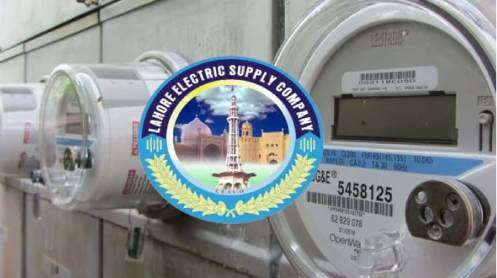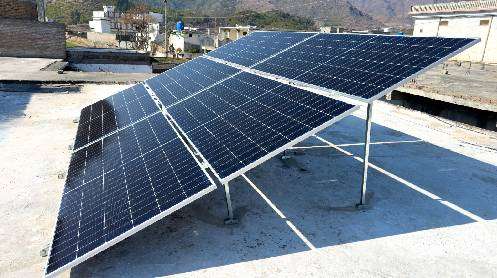KARACHI: Pakistan’s energy supply relies heavily on fossil fuel sources, which has prompted the need for financial institutions to divert their finances towards renewable energy projects in the country, experts said on Wednesday.
Academics, researchers, environmentalists and policymakers said that financial institutes needed to redirect their funding from fossil fuel sources to renewable projects to address environmental concerns.
They were attending the launch of the “Energy Finance Outlook – A Case of Pakistan”, a study conducted by the Department of Economics and Management Sciences of the NED University in collaboration with the Indus Consortium. The consortium works on humanitarian, environmental and development initiatives in Pakistan.
Dr Raza Ali Khan, chairman of EMD, NED University chaired the session on “Energy Financing Trends in Pakistan”, while renowned environmentalist Nasi Panhwer chaired the session on “Climate Change and Environmental Sustainability”.
Dr Mirza Faizan Ahmed, a senior researcher and assistant professor at EMD presented the findings of the study. Other speakers included Indus Consortium CEO Hussain Jarwar, UBL Divisional Head – Policy and Transformation Rashid Azeem, Iqbal Hyder, Fiza Qureshi, Director Knowledge Forum Zeenia Shaukat, Yasir Darya, Sindh Forest Department representative Shehzad Sadiq, Fisherfolk community leader Fatima Majeed and others.
The study unveils crucial insights into the financing flows from 2019 to 2022 of various energy sources and their implications for the country’s future energy supply. The study comprises a comprehensive analysis of financing data, policy reviews, and a detailed case study of Jamshoro Power Company Ltd.
It sheds light on the need for a comprehensive and integrated energy policy. The findings of this study are of utmost importance for policymakers and the industry, highlighting the opportunities and challenges that lie ahead.
Despite some prior efforts to address environmental concerns, Pakistan’s energy sector continues to heavily rely on fossil fuels, with over 85 percent of the energy supply originating from such sources. Moreover, thermal sources contribute to more than 60 percent of the electricity production, despite the availability of greener alternatives like wind, solar, and hydropower.
China, World Bank, Asian Development Bank, and other international and domestic entities emerge as major financiers in Pakistan’s energy sector. Hydropower has received the largest share of 40 percent financing, followed by 17 percent coal, nuclear, transmission and distribution projects, and capacity building.
Notably, the study indicates a potential decrease in the proportion of fossil fuels in the energy mix, despite expectations of an increase in coal usage.
Jamshoro Power Company Ltd has been taken as a model in the study. The study says that it poses risks, including environmental pollution and adverse health effects to the Indus River, local communities and surrounding three universities; Liaqat Medical University, Sindh University Jamshoro and Mehran University of Engineering, Science and Technology.
Based on the study’s findings, several recommendations have been proposed.
The study suggests that indigenisation, financial sustainability, and environmental responsibility should be prioritised, with private sector involvement encouraged to reduce reliance on international financiers. Additionally, the optimisation framework of the indicative generation capacity expansion plan should consider separate scenarios for environmental and economic costs, fostering a balanced energy mix.







